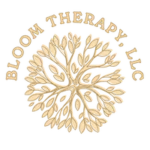Many people carry the pain of a sibling relationship that never felt safe, supportive, or mutual. If you’ve decided to step away, and are wondering whether healing from a toxic sibling relationship without reconciliation is truly possible, you’re not alone. The truth is, healing doesn’t require returning to a relationship that continues to cause harm. It requires choosing yourself, even when closure never comes.
Why Reconciliation with a Toxic Sibling Doesn’t Always Work
In an ideal world, reconciliation means mutual understanding and real change. But with toxic siblings, that’s often not the case. You may have tried to set boundaries, express your pain, or ask for accountability – only to be met with denial, deflection, or manipulation.
Staying in contact may mean repeating painful patterns. In these situations, cutting or limiting contact isn’t giving up – it’s an act of self-protection.
Grieving the Sibling Relationship You Never Had
Choosing not to reconcile means letting go of what could have been. It’s normal to grieve the version of your sibling you hoped for – the one who listened, cared, and showed up for you.
This grief may include sadness, anger, guilt, or even relief. Therapy can offer a space to process these complex emotions and honor the loss without minimizing it.
Healing Without Reconciliation: What It Can Look Like
Healing is not a single act – it’s a layered and ongoing process. When you’ve chosen distance from a toxic sibling, healing might involve:
- Rewriting the story. Journaling, therapy, or creative work can help reframe your experience and reclaim your voice.
- EMDR Therapy. EMDR helps desensitize traumatic memories and reduce emotional reactivity to your sibling’s actions or presence.
- Art Therapy. Creating can help you explore grief, anger, or hope when words fall short.
- Building a support network. Surround yourself with chosen family – friends, mentors, or partners who see and support you.
- Nervous system regulation. Breathwork, grounding, and somatic tools help you recover from chronic stress tied to your sibling relationship.
Healing without reconciliation doesn’t mean pretending you’re fine. It means giving yourself space to grow outside of the role that relationship kept you in.
What About Forgiveness?
Forgiveness is deeply personal. For some, it means letting go of resentment. For others, it means no longer allowing the past to define their worth or present.
You don’t need to forgive in order to heal – and you definitely don’t need to reconcile in order to grow. Therapy can help you define what forgiveness means for you, without pressure.
How Therapy Supports Healing Without Reconciliation
At Bloom Therapy, we work with individuals who’ve made the courageous decision to step away from painful family dynamics. Through EMDR, Art Therapy, and talk therapy, we support clients who:
- Are grieving a relationship that never met their needs
- Want to move forward without being pulled back into dysfunction
- Are learning to trust themselves again after years of invalidation
You don’t need their permission to start healing. You’re allowed to grow in the direction of your peace.
Want to learn more about how we support healing after family estrangement? Visit our Family Conflict Therapy page to explore how we work with adult clients navigating sibling and family pain.
Related Posts You Might Find Helpful
– Toxic Sibling Signs: 5 Ways to Spot Emotional Harm
– Toxic Sibling in Adulthood: What You Can Do About It
– Boundaries with a Narcissistic Sibling: How to Protect Your Peace
– Why Sibling Conflict Hurts So Much
If you’re choosing distance from a sibling, these companion posts offer guidance on boundaries, grief, and emotional recovery.
